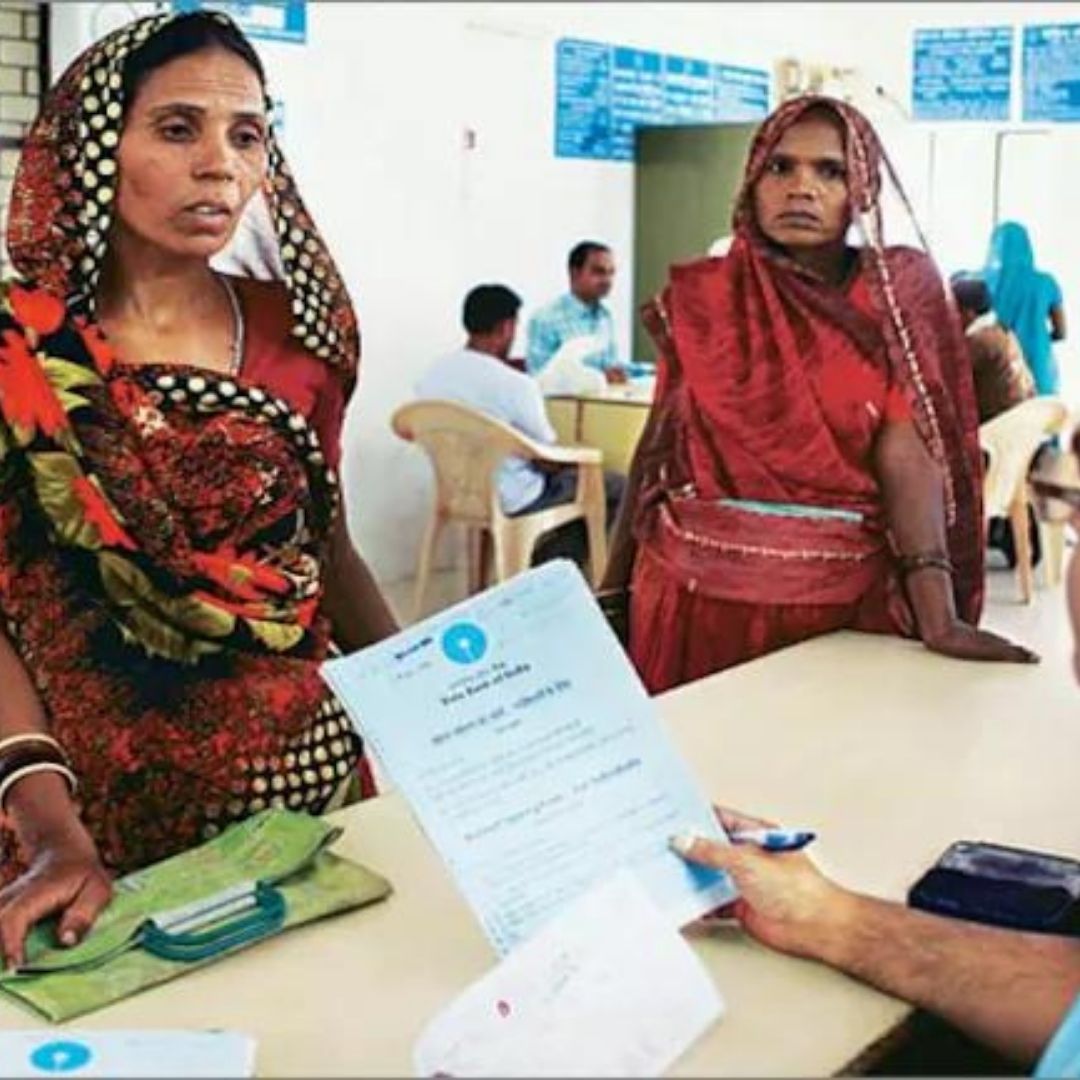
Image Credits: India Today
Financial Inclusion: Seven Years On, Govt's Jan Dhan Yojana Becomes Source Of Hope For Millions Of Indians
India, 31 Aug 2021 10:39 AM GMT
Editor : Palak Agrawal |
Palak a journalism graduate believes in simplifying the complicated and writing about the extraordinary lives of ordinary people. She calls herself a " hodophile" or in layman words- a person who loves to travel.
Creatives : Tashafi Nazir
For most people, journalism sounds hectic and chaotic. For her, it's a passion she has been chasing for years. With an extensive media background, Tashafi believes in putting efforts on presenting a simple incident in the most interesting way.
Before 2014, it is estimated that more than half of the country's population did not have access to banking facilities— neither they had any means of savings nor any opportunity to get institutional credit. A large part of the benefits in the form of subsidies could not be availed by the beneficiaries or the welfare schemes did not reach them.
On Saturday, August 28, India marked the seventh year of the Narendra Modi-led government's 'Pradhan Mantri Jan Dhan Yojana,' which paved the way for the financial inclusion of countless citizens.
Before 2014, it is estimated that more than half of the country's population did not have access to banking facilities— neither they had any means of savings nor any opportunity to get institutional credit. A large part of the benefits in the form of subsidies could not be availed by the beneficiaries or the welfare schemes did not reach them.
To free the country from these problems, at least one bank account in every family for the first time, verified through Aadhaar and linked with the mobile number was started. For the first time in the budget speech of the year 2015, the then Finance Minister Arun Jaitley mentioned the Jan Dhan-Aadhaar Mobile, i.e. JAM scheme.
The concept of the "1 billion- 1 billion- 1 billion' connectivity vision was to ensure financial inclusion. It involved linking one billion unique Aadhaar numbers with one billion bank accounts and one billion mobiles.
For this purpose, firstly, an extensive drive to open bank accounts under Jan Dhan Yojana was started, and then the money was sent directly through DBT in Aadhaar verified accounts.
JAM Trinity put an end to the role of mediators. This was regarded as the most successful example of the deployment of technology for preventing corruption.
Empowering Rural People
The initiative changed the lives of people, especially those residing in rural areas.
India Post Payments Bank became a boon for people living in remote areas. "Earlier, one had to travel 20 km to deposit or withdraw money. It was such a hassle before. Now the need to make frequent visits to the bank is over," said Darshani, living in the remote Magadai village of Odisha, as per NewIndiaSamachar.
"Now there are no discrepancies in the transfer of cash benefits. Since the money is directly transferred into the bank accounts, this has helped us develop an interest in the government schemes," said Devendra Singh of Nagaon, Madhya Pradesh, reported the publication.
Financial inclusion refers to making financial services like payments, savings, loans, etc available to the low-income groups and the underprivileged.
In its absence, people are forced to join the informal banking sector or moneylenders where the interest rates are high. Reportedly, over 95 per cent of financial transactions happened in cash. Due to corruption, the benefits of government schemes did not reach the poor entirely, with several cases of misappropriation of funds.
The government's commitment to providing social security to all is borne out of its motive of 'Sabka Saath-Sabka Vikas'.
This has been made possible owing to the massive success of the schemes aimed at empowering the marginalised groups with financial inclusion.
At present, more than 42 crore people in the country have Jan Dhan accounts, out of which 55 per cent are women account holders. Significantly, more than 1.5 lakh crore are deposited in Jan Dhan accounts, showing that the banking facility has given people access to a secure future. These accounts are also covered by the insurance policy, which provides security to the account holder's family in case of any untoward incident.
Financial inclusion is the seventh goal in the 2030 UN Sustainable Development Goals (SDGs). Therefore, aligning with the central government's initiative, the Reserve Bank of India has intensified the work on the national strategy for a 'New India', that is based on the principles of economic opportunity for all, knowledge economy, inclusive growth, and state-of-the-art digital infrastructure.
The Jan Dhan Yojana which envisages financial inclusion for all is winning accolades from trade pundits.
 All section
All section














